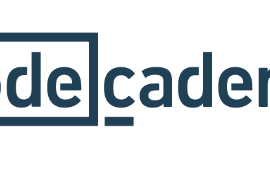Disclosure: I may earn affiliate revenue or commissions if you purchase products from links on my website. The prospect of compensation does not influence what I write about or how my posts are structured. The vast majority of articles on my website do not contain any affiliate links.
Whenever I eat lunch near a computer, which usually happens every day, I open a new browser window with all of my favorite news sites pre-loaded. During a short lunch period, I cram in as much information and as much food as possible. Then, I brush my teeth and get back to whatever it was I was doing before lunch.
My first step upon visiting a site is to scan the headlines and open as many of the links in new tabs as possible. Recently, though, I’ve been noticing something strange. When I command-click links (this opens the link in a tab) on certain sites, my expected behavior is highjacked and the new tab doesn’t open. I’m simply redirected to the new page in my active window. To return to the homepage and open more articles, I then have to open a new tab, renavigate, and scroll down from the top of the page (or, alternatively, hit the back button) to find the next article I want to read. It’s a mild inconvenience.
Why would a website, especially a news website, implement such behavior? The most obvious reason is that it increases pageviews essentially by 2x. Rather than visiting the homepage once and opening eight tabs, I instead have to visit the homepage eight times and open eight tabs. As someone in charge of monetizing a website, would you rather have nine views or sixteen views from a single user? In a world of decreasing profit margins for web media, this decision annoys customers while inflating readership numbers. It provides the illusion of websites being more valuable than they are. It’s a cheap trick that is most commonly implemented by free websites that earn revenue from advertising, not from my beloved Wall Street Journal.
From the perspective of advertising, a user being forced to revisit the homepage is stuck starting from the top and spending more time looking at banner ads and headlines. Naturally, a user will scan everything (at least subconsciously) and will be incrementally more likely to click headlines that were passed over on the first attempt or, more importantly, click ads that might be totally different this time around. This is purely for the benefit of the business. They have people in a room crunching the numbers on traffic optimizations. Meanwhile, the user feels more like a rat in a maze.
Are there disadvantages?
One disadvantage for the website is that the average time spent on a page–both the homepage and each article–will be drastically reduced. By queuing up articles and reading them in sequence, whatever comes at the end of the line might be ‘open’ for at least ten minutes before a user gets there. This is a metric that is tracked and a metric that is valuable, but it is nowhere near as important as pageviews. Most users aren’t power readers like me, so it’s not worth trading guaranteed extra pageviews for what would average out to just a few seconds average extra duration.
Another negative is that people like me–who read a lot on a non-mobile browser within a limited window of time–will be less likely to open multiple tabs. Eventually, it builds negative sentiment. Whereas desktop users who find a site through organic search may figure that they just clicked something wrong to have their redirect behavior not work as expected, heavy users who seek out the site on a daily basis will eventually grow tired of the inconvenience. Sorry, ESPN and FiveThirtyEight, but I visit your websites less now.
Is it Ethical?
Ethics are at the center of so many discussions now, and I can’t be the only one bothered by this. So, while obviously legal, is this ethical? In my opinion, this is ethical but slimy. Legitimate news sites have a duty to their readers and hijacking link redirection behavior doesn’t get in the way of that. This inconvenience is more akin to paying a toll. You don’t want to pay for a website? Pay with your time and attention span. This argument has driven businesses on the internet for many years. It’s a slippery slope, though. This is a subtle change. What if you had to watch a full-length ad every time you viewed an article on ESPN? A lot of local news websites already do this. What if you had to click through a maze of ads? What if you were forced to share an article on Facebook in order to view it?
There are smart people behind high traffic sites all over the world thinking about how they can best monetize growing traffic. In my opinion, all it will take is one major website taking the leap before all the other ones that are bleeding cash quietly follow suit. It’s hard to argue about the ethics and the larger discussion will probably involve whether certain types of journalistic endeavors are sustainable–period–in the world we live in today. Whenever you want something for free, you become the product, and there’s not much more to it.
What Can You Do About It?
The only behavior that is hijacked is the act of command-clicking itself. By right-clicking and selecting “Open in a New Tab” you can open new tabs as desired.




